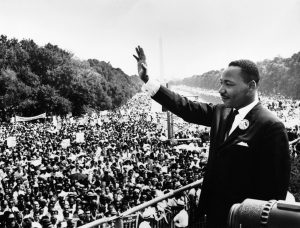“To me, Hyesan was home,” explained Yeon-Mi Park, a young North Korean defector.1 Hyesan, her home, had a power grid with no promise of continuously working, but it no doubt shined bright for North Korean supreme commander. Her home had prison labor camps that never promised food, but they did offer disease and starvation.2 Her home had no true word for “love,” but it did have a halfhearted translation to a type of worship reserved only for their supreme commander. Her home, on the base of Yalu River, was situated right across from China, showing city lights and sending smells of oily noodles to the noses of starving people. She would soon leave this home behind her, and ahead of her would be the entire world.

Park was born October 4th, 1993 when her mother was only seven months into her pregnancy. She began her life tiny and cold, similar to how she’d spend the majority of her time in this home. A heated stone and a bundle of blankets saved her life. Growing up in this totalitarian society was different for her since, at times, she was better off than others. Despite that, her family’s caste became poor songbun after a family member was accused of raping one of his students. The family carried this burden together, struggling to escape the “hostile” class. The struggle came to an end when Park’s father became a laborer at a local metal foundry, where he worked endlessly to display his loyalty to the regime. Through his hard work, the Park family received membership to the Worker’s Party, but this label later proved meaningless as times worsened and people became increasingly desperate.3
“North Koreans have two stories running in their heads at all times, like trains on parallel tracks,” and Park had experience on both tracks.4 One of these tracks held thoughts that streamed constantly, repeating and rewinding, shining light on what this beautiful life held for those who supported the supreme commander. The other track was less traveled, but still taken at many points in citizens’ lives. It was one that held confusion, anger, and curiosity about how they were living. Many citizens believed the propaganda-filled entertainment was the only thing accepted, but it wasn’t. Park, like many North Korean citizens, illegally watched South Korean soap operas, old wrestling matches, and Hollywood movies, despite the fact that the love they had for their supreme commander clashed with this dirty little secret. The film Titanic was one of these secrets, and it changed her life. It was a real story, not one filled with propaganda. It held “love and humanity,” people choosing their own destinies, and this gave Park a “small taste of freedom.”5

Park’s life changed for the better when her father created a side business as a black-market entrepreneur dealing in illegal capitalism. During this time, they ate three meals a day, though her father stayed away for a majority of the year to sell cigarettes, dried eels, and precious metals. Along with his work, he committed adultery with a young woman named Wan Sun, who helped his business thrive. Together, they were arrested for smuggling. Park’s mother left her and her older sister with a bag of rice and cooking oil, while she went to see if she could help her father. When her mother arrived back a month later, she didn’t bring good news. Park’s father was held at a detention and interrogation center where he was beaten and questioned to no avail. After he said very little, he was moved to a reeducation labor camp, where he would hopefully be released after his rehabilitation. His release didn’t come as quickly as Park’s mother hoped, and so she frequently left the children to fend for themselves over the next seven months while she worked. Her mother made the decision to keep her girls alive, and the family trio packed up their home and left what they had ever known.6
Park soon had another encounter with freedom in her early life. When she had left her childhood home behind, her mother left her with her aunt in the countryside, which is where Park regained her health and her mind grew.7 She spent time in nature and learned how it could heal her. Her healing was short-lived, because her mother returned with news that her father was to be sentenced to ten years of intense labor in the North Korean labor camps. Park soon left with her mother and fought for her life at Park’s uncle’s home. It was here that she had revisited a life of hunger and near death, but still, Park became involved in her own form of black-market entrepreneurship and illegal capitalism: persimmons. A delicious fruit she stole with the help of grain alcohol and a traitorous guard. Once again, she had her own slice of freedom.8
Life became empty in Park’s eyes. Her father returned due to extreme sickness; he was no longer helpful in the labor camps. He bribed his warden with one million North Korean won. He would never be able to pay this, but he had a plan. Since the warden had released him to get this money, the warden couldn’t incarcerate him again because he would then look suspicious for letting someone out, and then snatching him right back. Even in light of this, due to his criminal record, their lives were again full of hunger and trials against their loyalty. The family began their plan of escape.9
Park fell ill in the midst of planning for this escape. At first, they believed it was appendicitis, but once the surgery had exposed her appendix, they found her intestines were inflamed. She needed time to heal from this surgery, but her sister Eunmi had a different plan. Eunmi attempted escape one night, but she failed and so she tried again the next night. On this second attempt, Eunmi crossed the river. When Park had left the hospital for home, she discovered a note with a written address from Eunmi, which would be the starting point for Park and her mother to escape to China, in hopes of finding Eunmi. They left Park’s father behind, the two of them anticipating their return to North Korea to retrieve him.10
On the night of Park’s escape, Yalu River was frozen solid, making the trek across it simpler than a swim. Park was still in bad condition, so her journey was physically painful and mentally exhausting that night. To be accepted by the people who helped them cross, they couldn’t be too young or too old, so the mother and daughter lied about their ages. They didn’t understand why they had to be within this age range until they met their brokers. For women to successfully escape North Korea through China, they had to be sold into marriages. The number of female brides readily available in China had become slim due to the one child policy and the desire for sons and not daughters. Marriage was Park’s way out. At the age of thirteen, she witnessed her mother sacrifice herself to brokers who would rape her in front of Park just so she could be safe. Her mother was soon sold to a country man, who treated his animals better than his wife. One phone call from her mother was all Park received while she stayed with a broker and his wife in China.11
The broker’s name was Zhifang. He waited exactly three days after he sold Park’s mother before he attempted to rape Park. Park went wild during every attempt, throwing her limbs and screaming at the top of her lungs. Eventually Zhifang couldn’t deal anymore, and he sold her to another broker named Hongwei. He treated Park in ways she had never been, spoiled with sweets, clothes, and gifts. However, she remained empty, having lost everything within her. Hongwei saw Park as his wife, someone he could be intimate with, but Park would never let him rape her. She always fought. It was at this point where she could no longer take the life she was living. During one of his attempts, Park escaped and ran to the kitchen where she grabbed a knife and stood on the balcony. She threatened to end her life, but something stopped her — a promise of one day reuniting with her family.12

On October 4, 2007, Park reunited with both her mother and father. Hongwei created a feast for the group, because it was also Park’s birthday. Their lives stayed stitched together for the oncoming months, but another obstacle made itself visible — Park’s father’s health. Since the group was mainly illegal, they couldn’t take him to a hospital without making themselves a target for Chinese government. They tried to make do with the small clinics, but his health continued to decline. Hongwei paid for Park’s father to go to a hospital, but when they operated on him, they closed him right back up because he had inoperable colon cancer with just under six months to live. He died with his eyes open. Park thought she “would be like her father and never close her eyes until [she] found [her] sister.”13
After her father passed, Hongwei softened towards Park. He believed her father was haunting him for stealing his daughter’s innocence. Park returned all the gold he adorned her with, and in her own way, bought her freedom. Her and her mother left to Shenyang to meet a friend they had met through sex trafficking; this woman had managed to escape from her husband and work as an entertainer in an adult chatroom. Through this, is how they made enough connections to contact Christian missionaries. With their help, they managed an escape to Mongolia on March 4, 2009, Park’s father’s birthday.14

Park only had to hold on for a little less than two months in Mongolia’s detention center, before her and her mother were flown to Seoul in South Korea. Here their life truly began after graduating from the Hanawon Resettlement Center. The government assigned them a home and the two found work as waitresses and assistants to keep up with their living expenses. In April of 2014, South Korean intelligence notified Park and her mother of Eunmi’s location, which is when they finally reunited.15

Life had never been a walk in the park for this North Korean defector. It was full of trials and tribulations that would ruin anyone’s will to survive. Park escaped her home, lost her family, and sacrificed so much in her life, just to live the way we do. From no electricity, no promise of food, and no trust within her home country, she now speaks for human rights and for her education across the entire world. Yeon-Mi Park is a woman who did anything she could in order to live and cross to freedom.
- Yeon-Mi Park, In Order to Live: A North Korean Girl’s Journey to Freedom (New York: Penguin Press, 2015), 9. ↵
- Wikipedia, 2018, s.v “North Korea.” ↵
- Yeon-Mi Park, In Order to Live: A North Korean Girl’s Journey to Freedom (New York: Penguin Press, 2015), 25-28. ↵
- Yeon-Mi Park, In Order to Live: A North Korean Girl’s Journey to Freedom (New York: Penguin Press, 2015), 53. ↵
- Yeon-Mi Park, In Order to Live: A North Korean Girl’s Journey to Freedom (New York: Penguin Press, 2015), 52-53. ↵
- Yeon-Mi Park, In Order to Live: A North Korean Girl’s Journey to Freedom (New York: Penguin Press, 2015), 71-80. ↵
- Jay Nordlinger, “Witness From Hell” National Review 66, no. 21 (October 2014), 41. ↵
- Yeon-Mi Park, In Order to Live: A North Korean Girl’s Journey to Freedom (New York: Penguin Press, 2015), 81-91. ↵
- Jay Nordlinger, “Witness From Hell” National Review 66, no. 21 (October 2014), 41. ↵
- Yeon-Mi Park, In Order to Live: A North Korean Girl’s Journey to Freedom (New York: Penguin Press, 2015), 115-121. ↵
- Yeon-Mi Park, In Order to Live: A North Korean Girl’s Journey to Freedom (New York: Penguin Press, 2015), 125-138. ↵
- Yeon-Mi Park, In Order to Live: A North Korean Girl’s Journey to Freedom (New York: Penguin Press, 2015), 139-150. ↵
- Yeon-Mi Park, In Order to Live: A North Korean Girl’s Journey to Freedom (New York: Penguin Press, 2015), 167. ↵
- Yeon-Mi Park, In Order to Live: A North Korean Girl’s Journey to Freedom (New York: Penguin Press, 2015), 198-212. ↵
- Wikipedia, 2018, s.v. “Park Yeon-Mi.” ↵



67 comments
Scott Sleeter
This is a wonderful article. I enjoyed reading about Park’s tribulations to obtain freedom and economic security. She is a wonderful protagonist that really keeps the reading following the story. The scenes of her life are well set, the reader is able to understand what she is up against without being turned off by hyperbole. The ending is good, even though it wasn’t 100 % a happy ending it was satisfying and you can walk away with a good feeling about how things turned out for Park and her family.
Shine Trabucco
Thank you for sharing this story. I have heard her story before and you do it justice. You are clear with your storyline and the information that you use in the article. I really like the photos you use and i think they add impact to the article
John Cadena
A very complete and well written story. above all else, what stood out to me was the well put together structure of the story as a whole. As a read along, I caught on to a few specific areas where attention was given, but no where more then clear than the understanding I felt after reading this.
Gabriel Cohen
Stories like this serve two great purposes in my opinion – they illuminate the worst elements of some and the best in others. Stories like these will always be captivating, and I think you did a great job of delivering her story in a very personal way.
Edgar Velazquez Reynald
Thank you for telling Park’s story. She has gone through so much that, as you say, would defeat many people. She remained resilient, however. You provided a lot of exposition without it seeming to be. After all the trials and tribulations, I’m very happy that Park, her mother, and her sister were at least reunited. Great work.
Danielle A. Garza
A very emotional story about present day horrors. Talking about a larger issue through the eyes of a defector is a hard thing to do. You did it splendidly and I appreciate the research you did to tell her and her family’s story to the fullest. I think the article could be even better if you talked more about North Koreas views as a whole. Giving the story a larger context in the world for those who may not know everything that has been unveiled.
Lindsey Wieck
Clarissa, this article is now a required reading in my graduate Advanced Public History methods course!
Sara Ramirez
Amazing article! Your introduction into the world of Yeon-Mi Park was very powerful and set the story up nicely. It was an eye opening perspective for outsiders such as myself, that helped to immerse readers into life as a North Korean citizen. I love that the movie “Titanic” was an inspiration for Park, showing people choosing their own destinies and expressing love and humanity. These are freedoms we take for granted and this article gave some perspective. Park is a very courageous woman and my heart breaks that her journey to freedom was fraught with torment.
Mario Sosa
Your article had a good introduction and I liked how you developed the character arc for Yeon-Mi Park. Park’s life shortly after leaving North Korea was just as hard in China, having to be separated from her mother and being forced to marry someone who bought her. Against all odds, Park survived her harsh journey to freedom and also got to reunite with her family. Excellent work on your article.
Tala Owens
I did not know of Yeon-Mi Park or her story before this article. She endured some of the most horrific things in life. The way she was able to push through it all is amazing. It is incredible that she was able to reunite with her family afterwards and they were able to live their lives peacefully. There are so many things like food, water, and shelter that we take for granted and people like Park had to fight for each and every one of those for a large part of her childhood. It is so sad that things like this happen to people. Park now fights for human rights and that is so amazing. She is truly someone to admire.